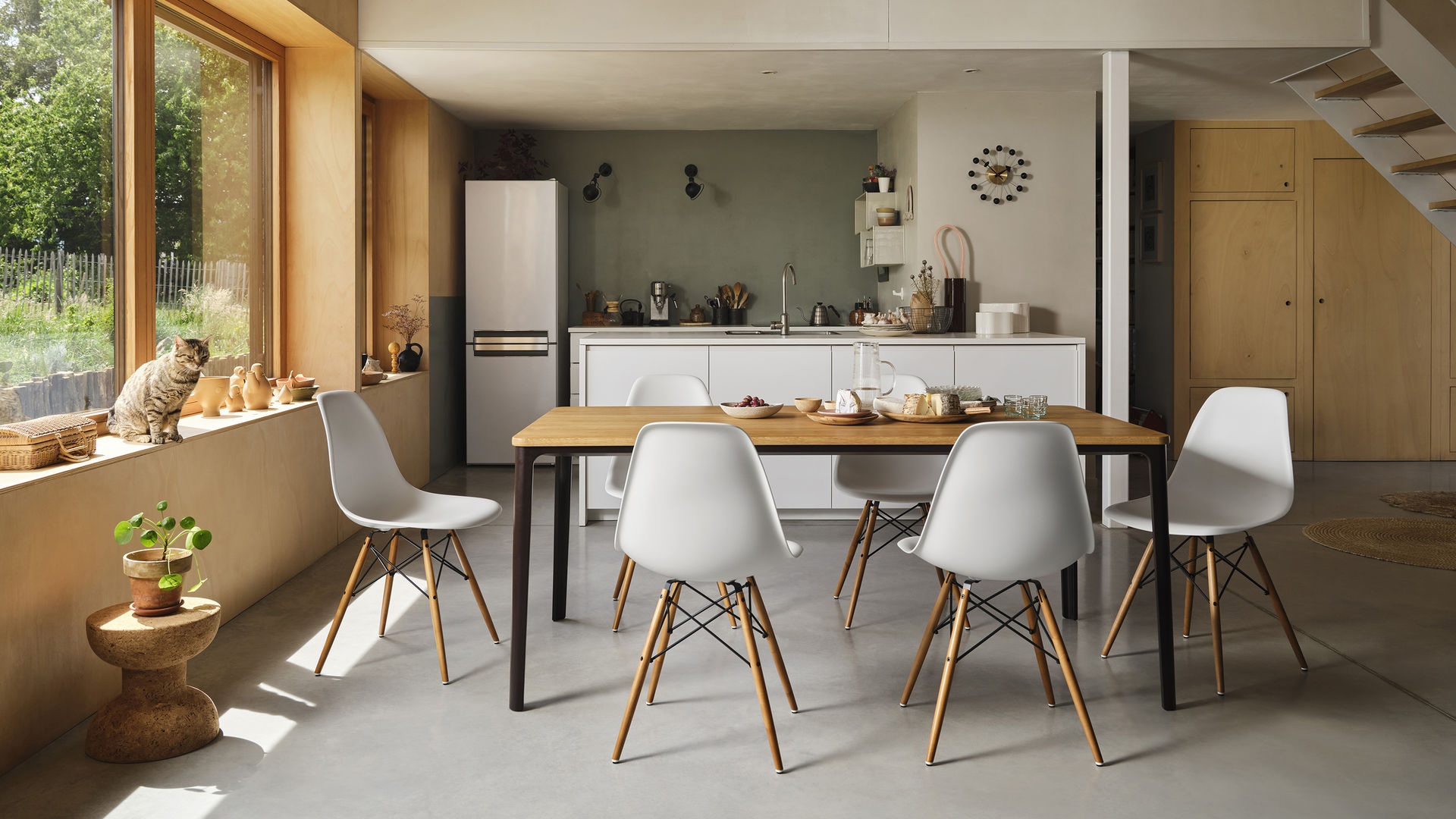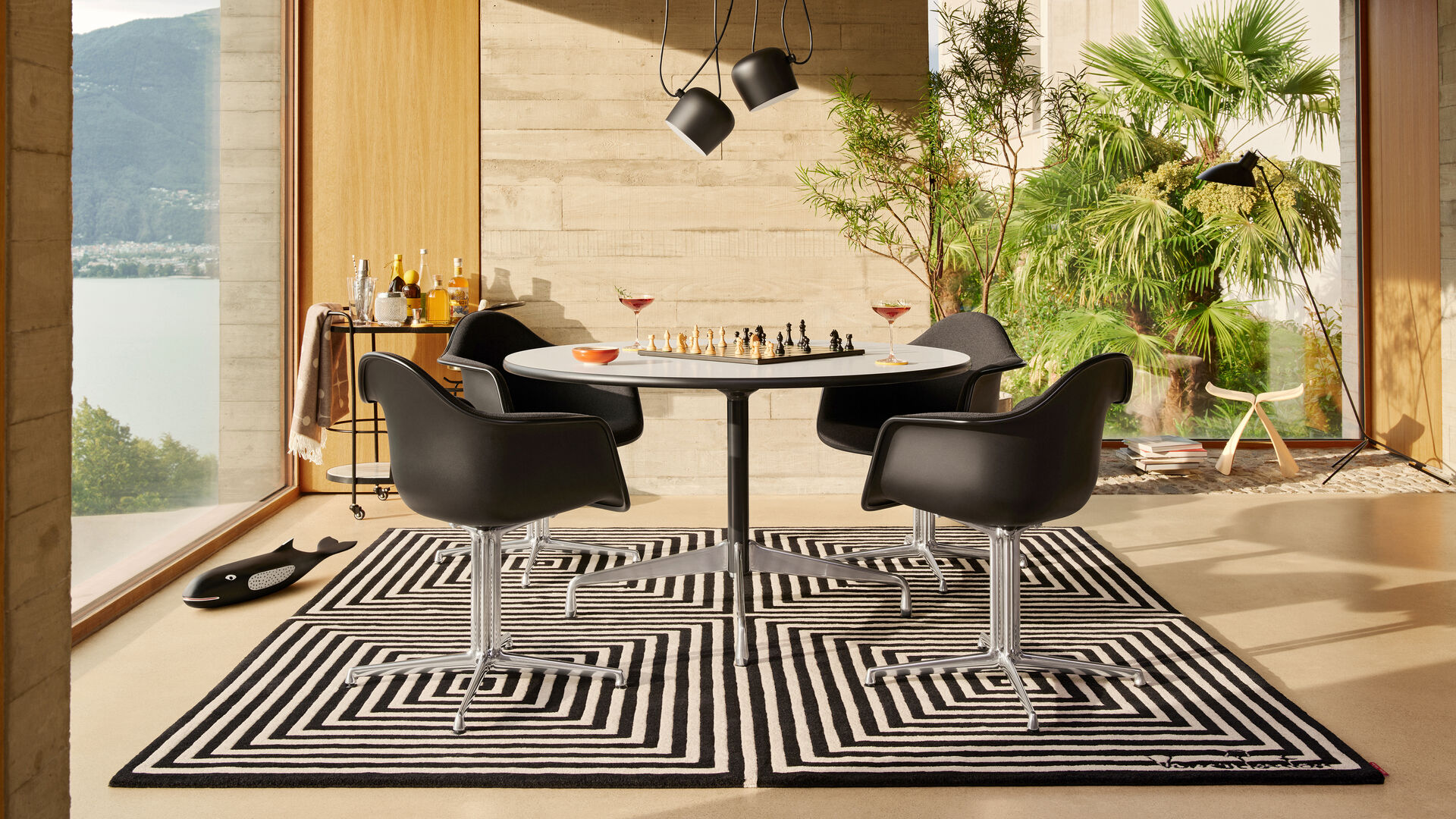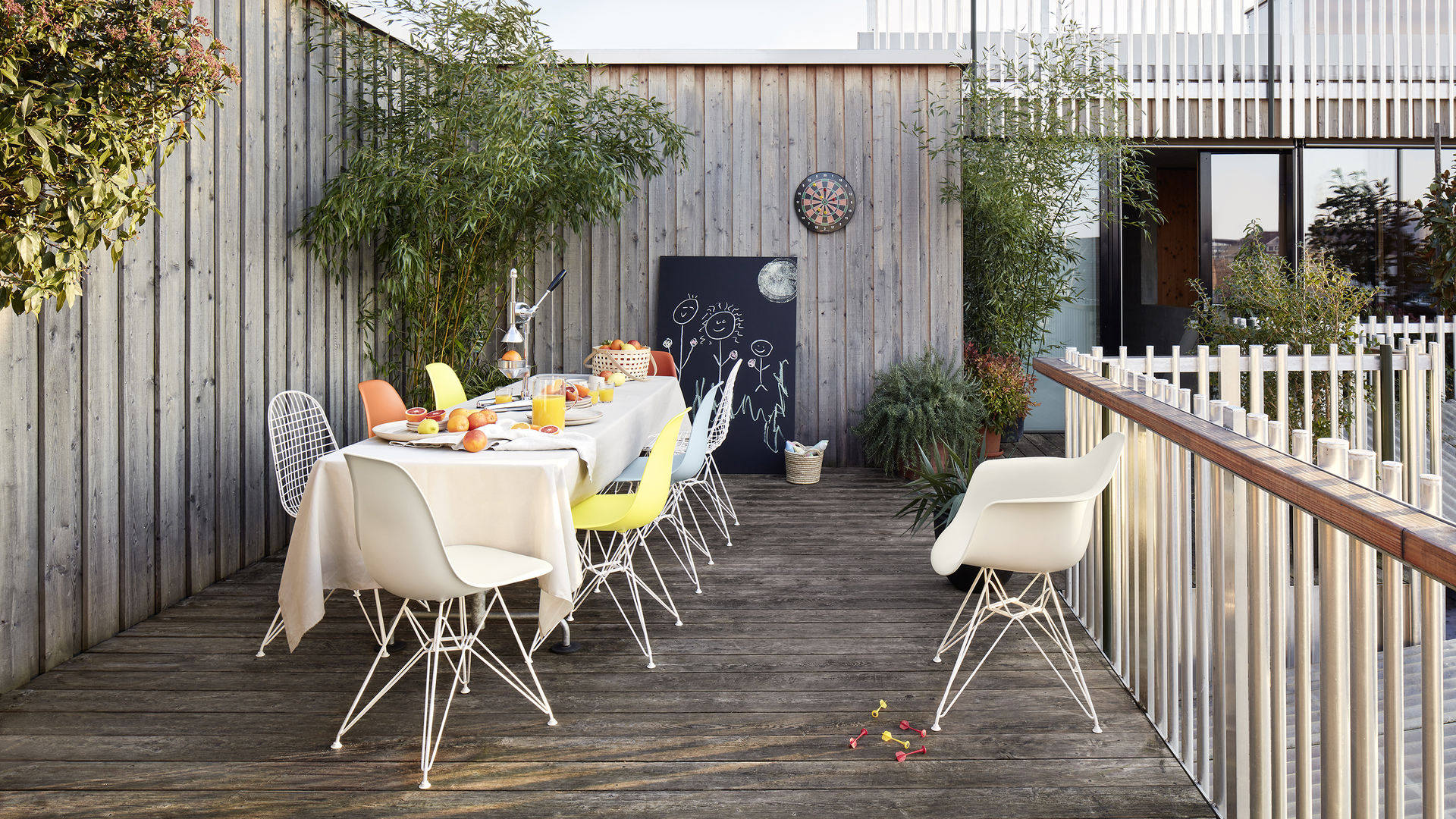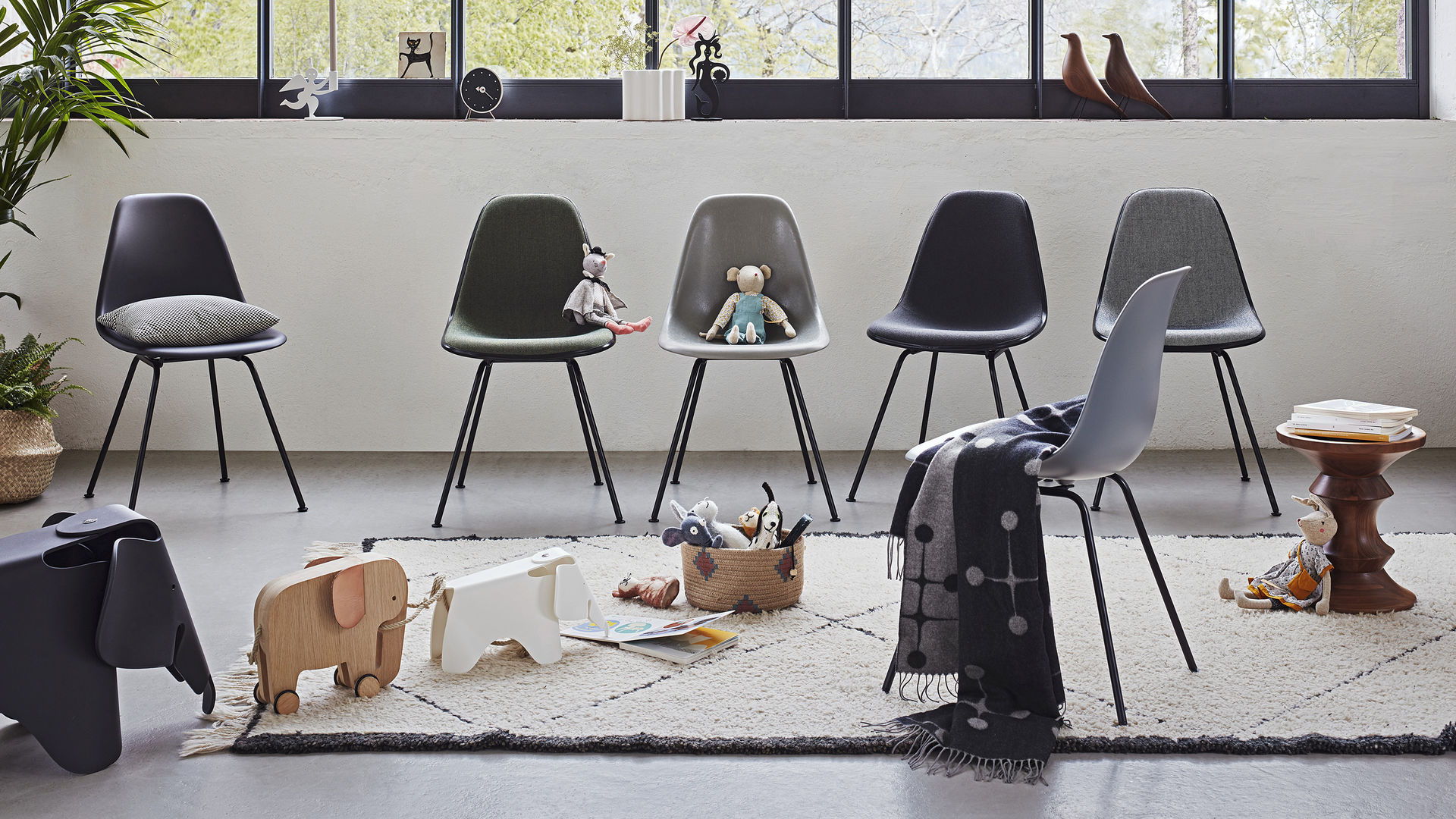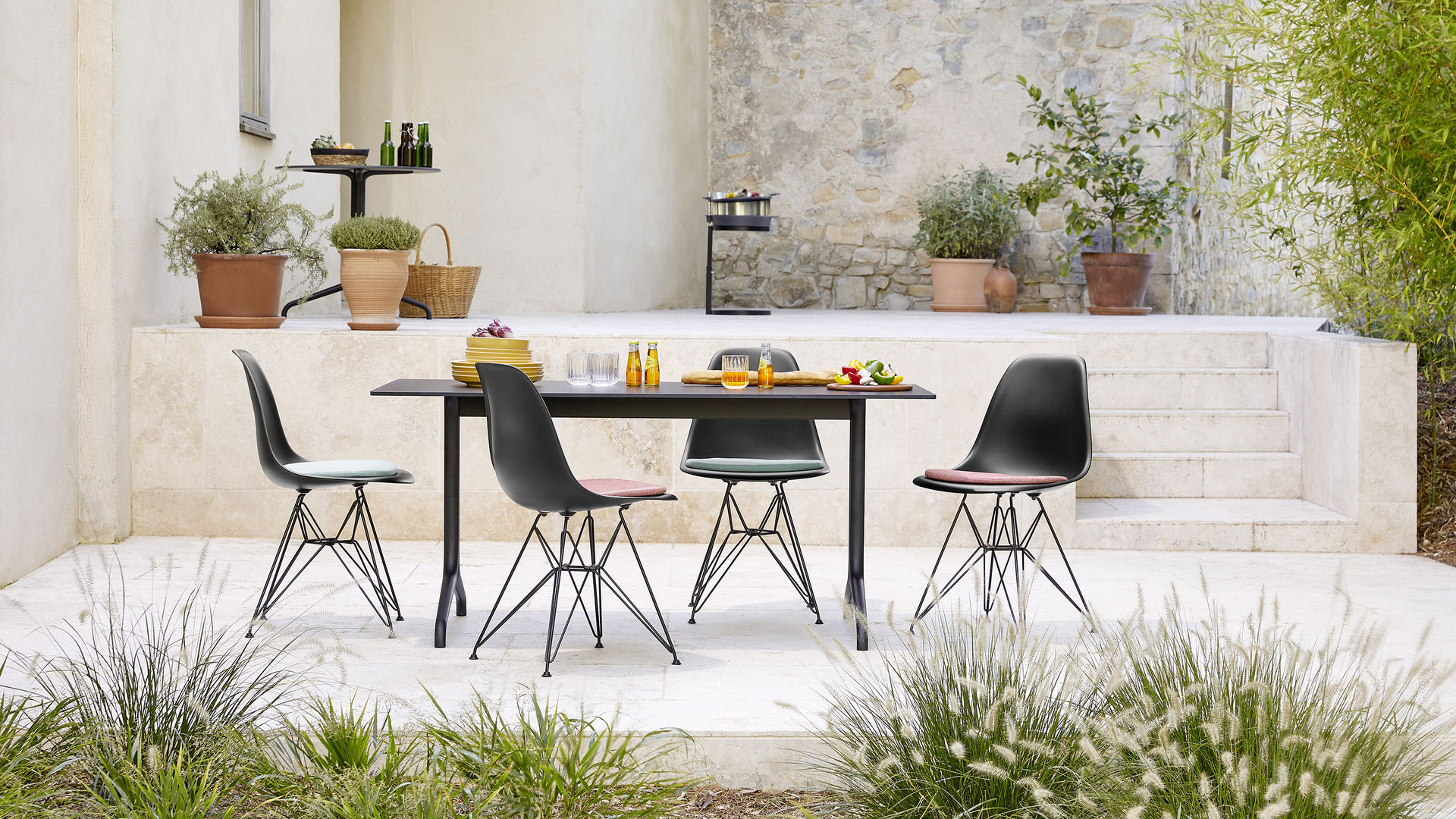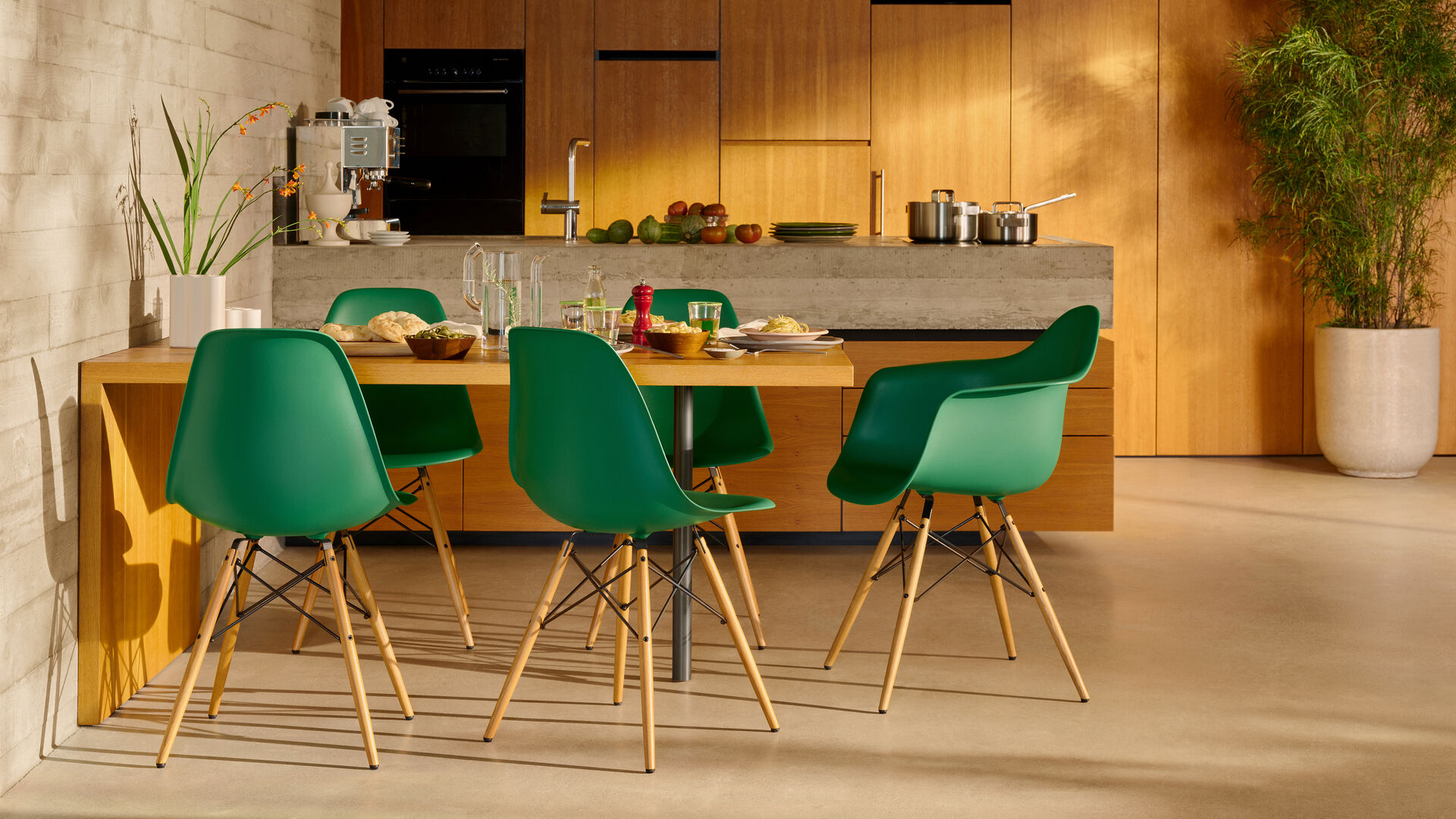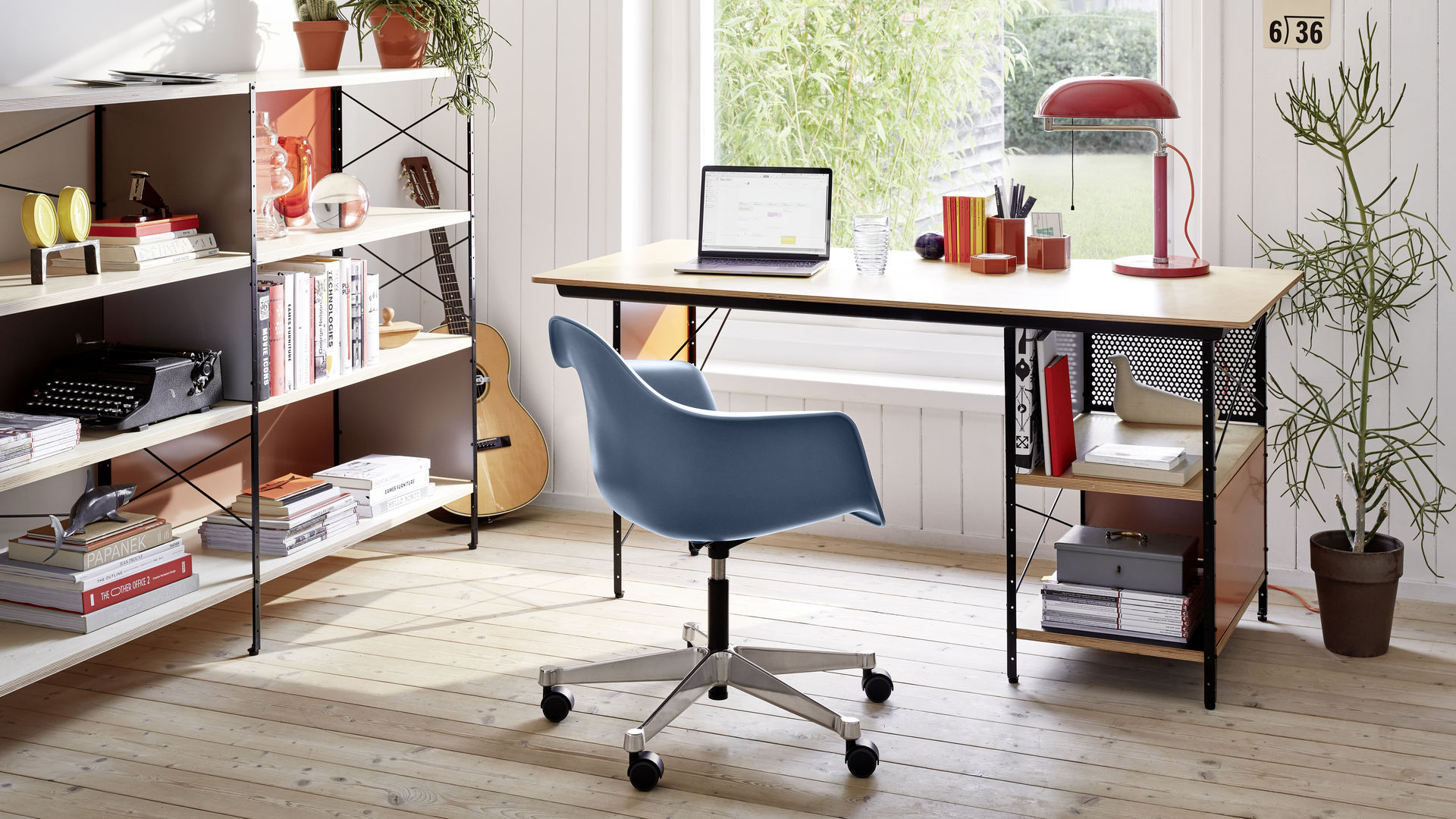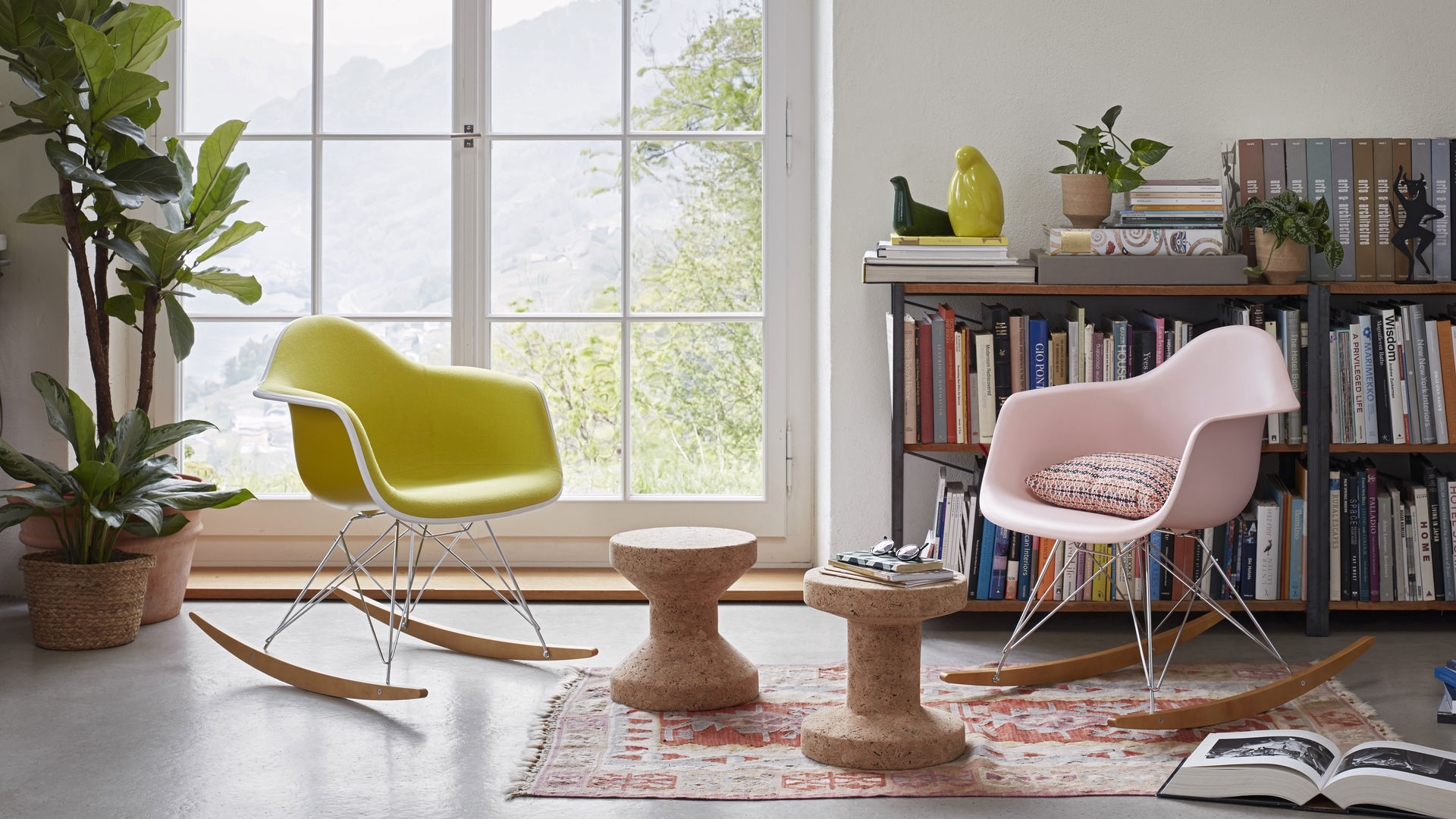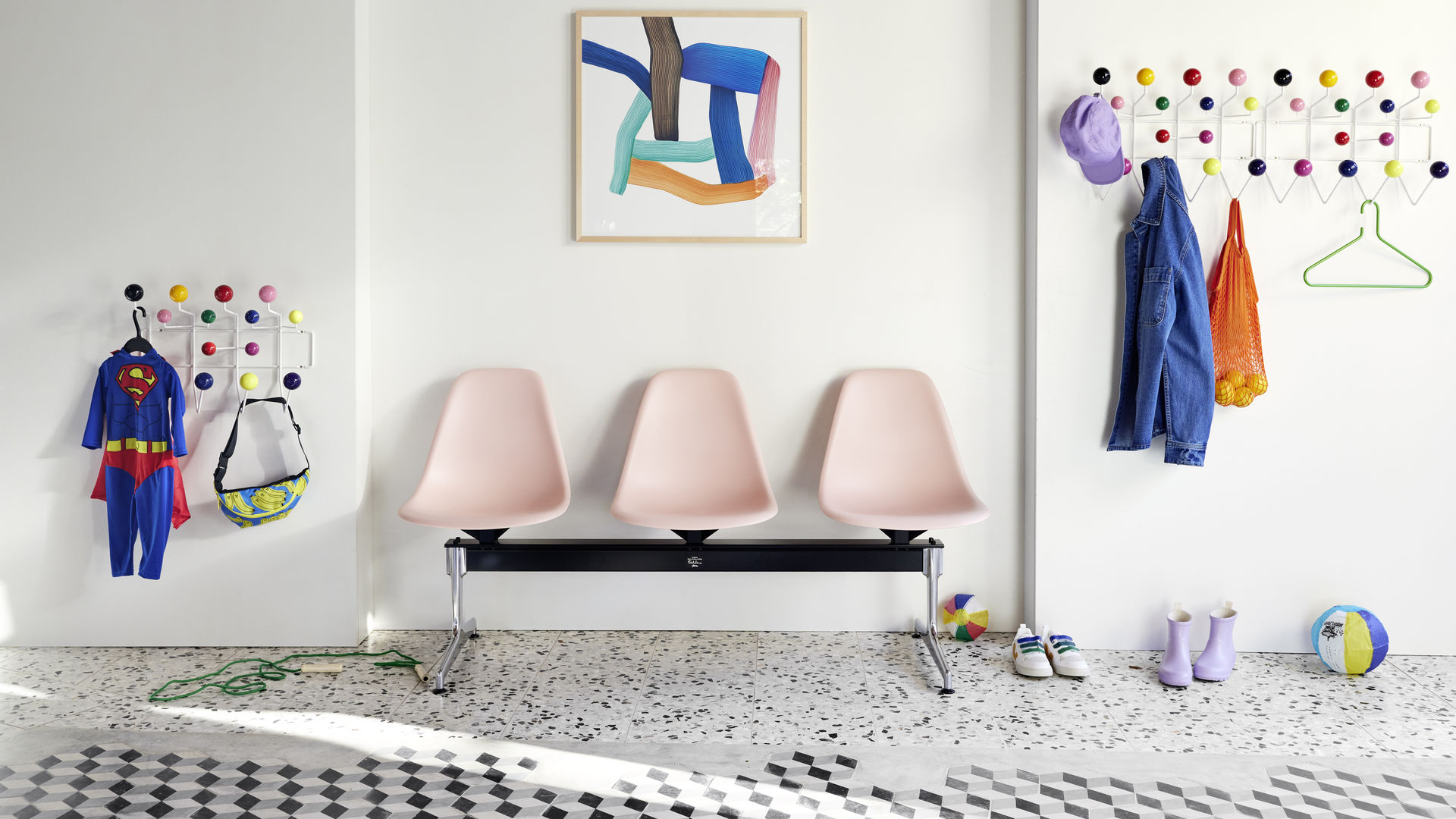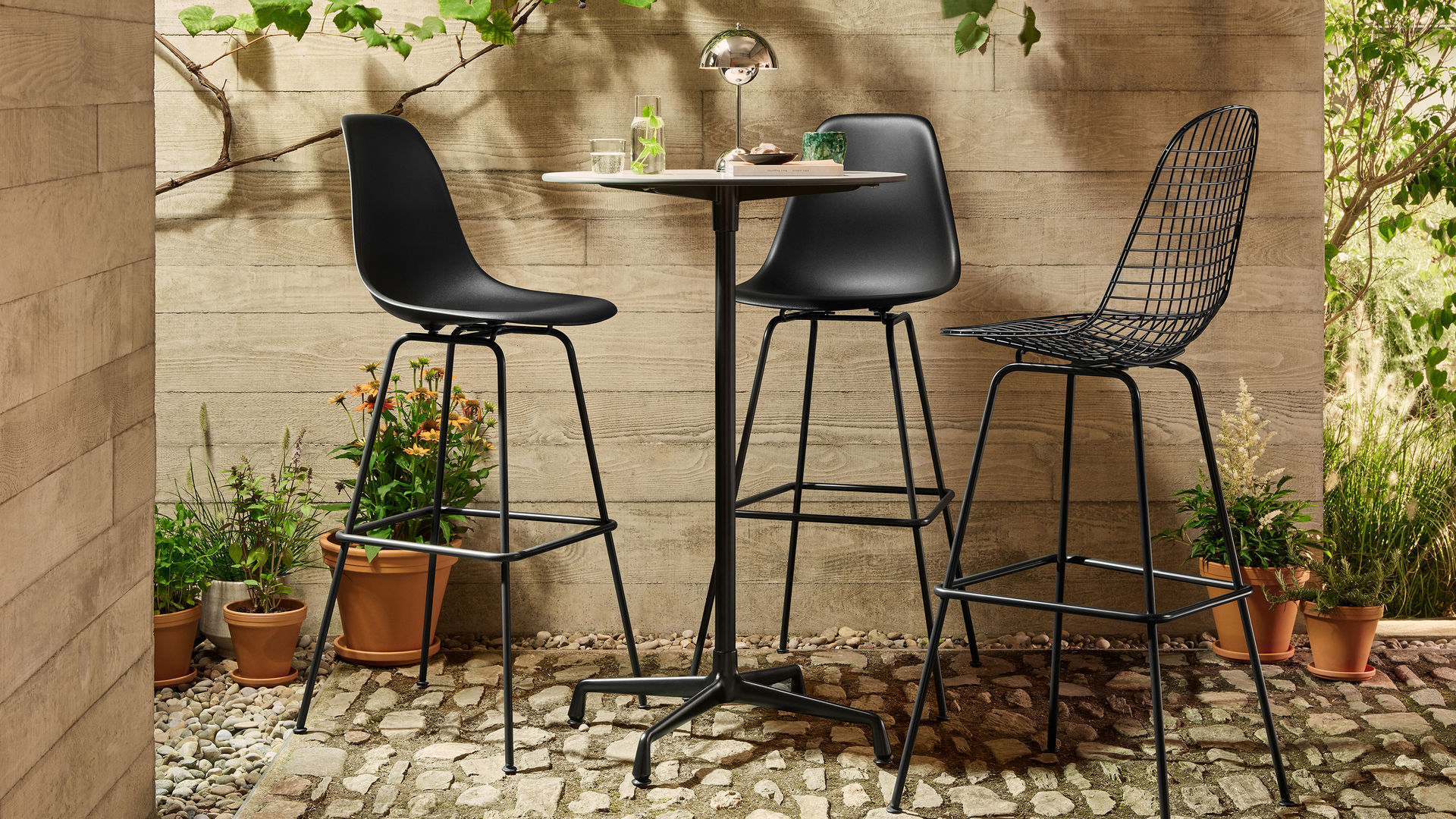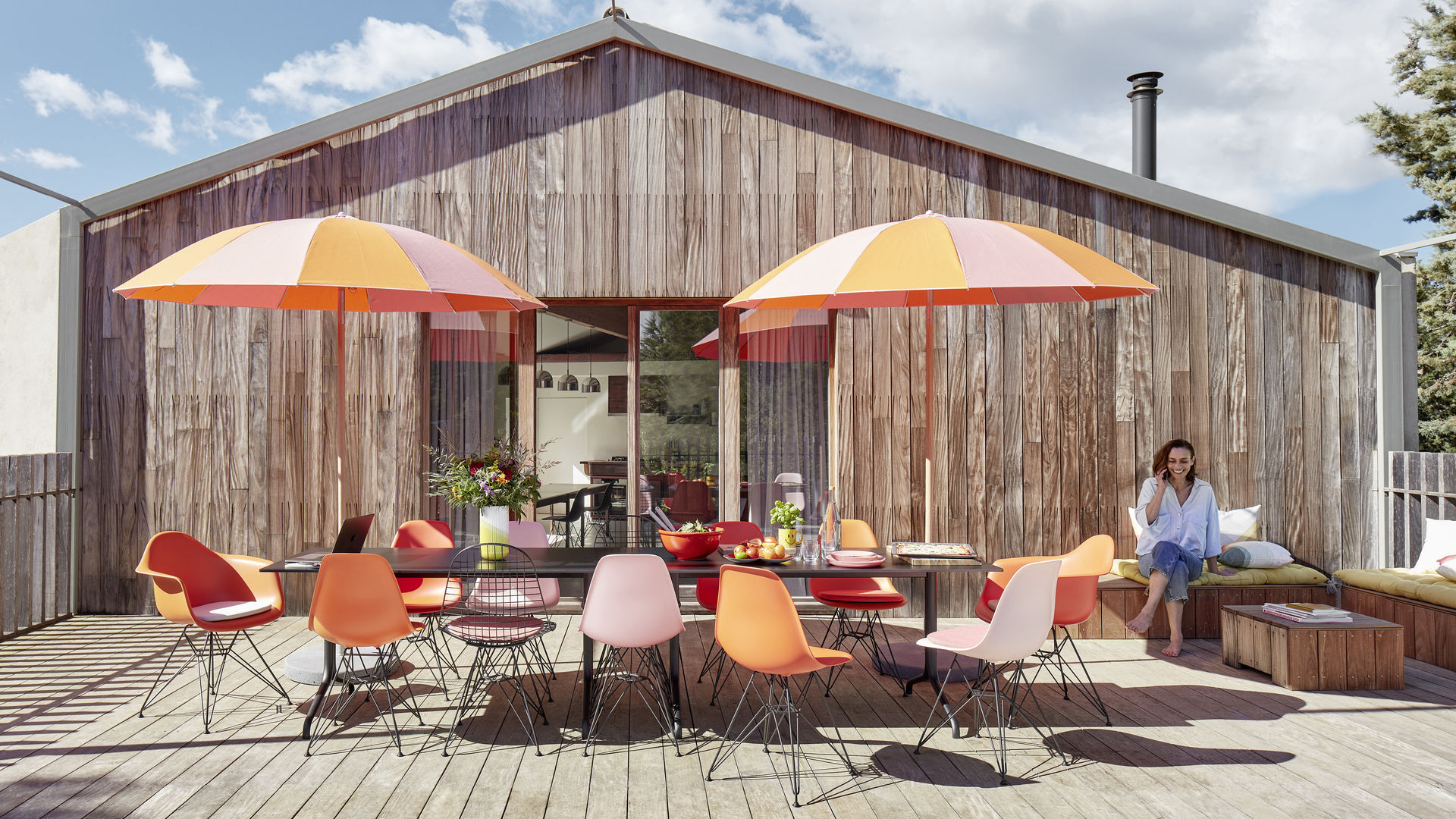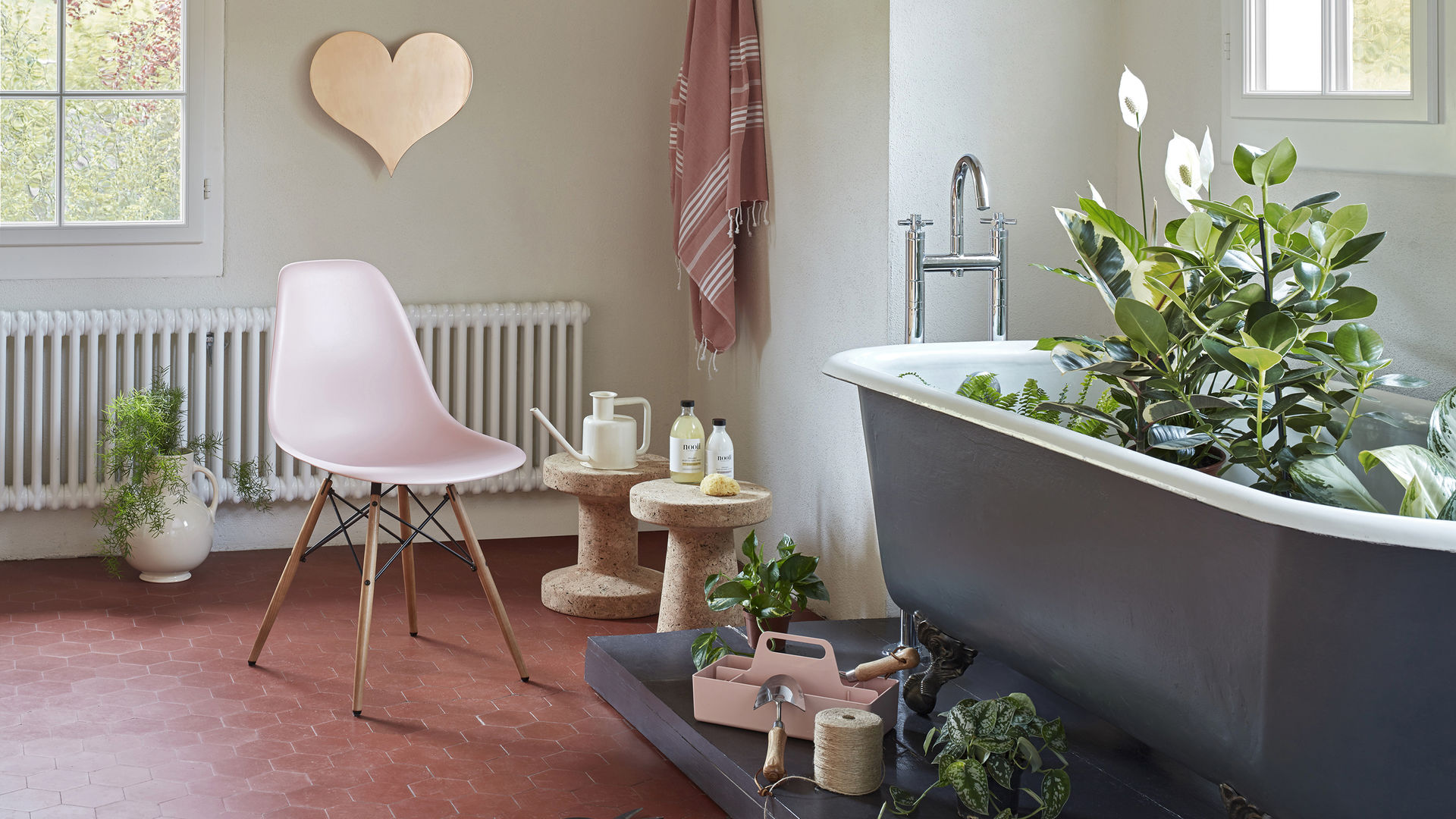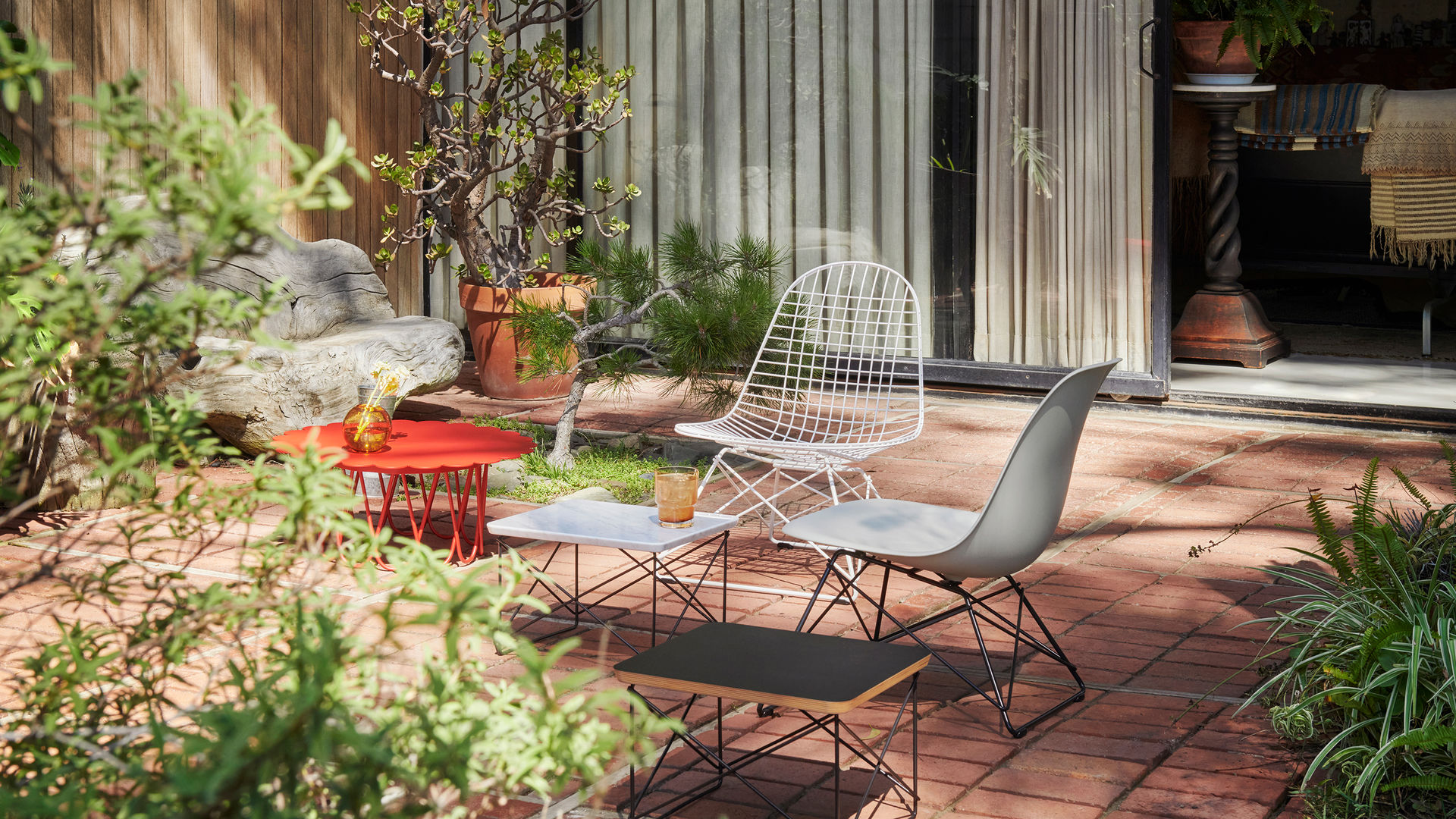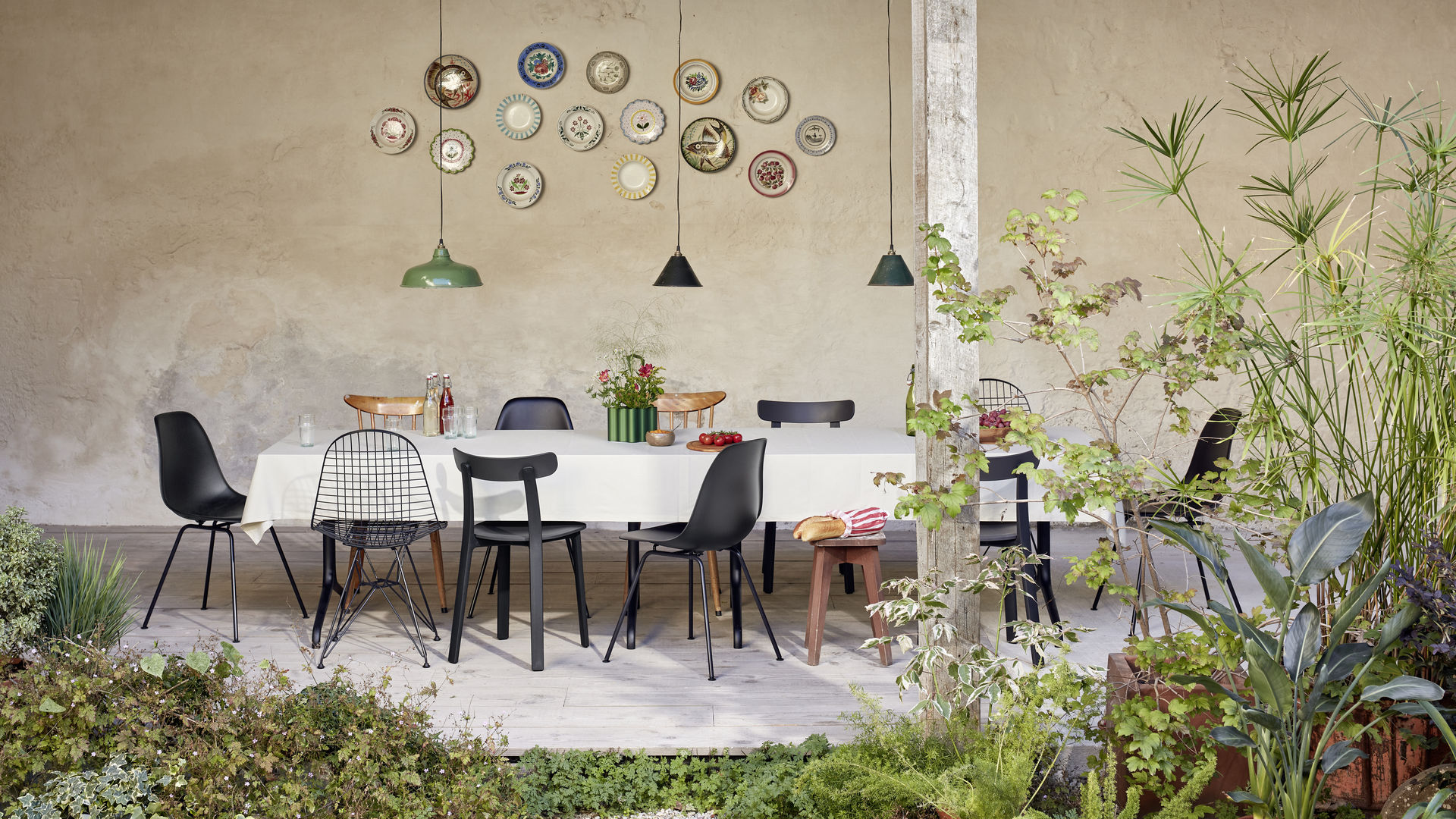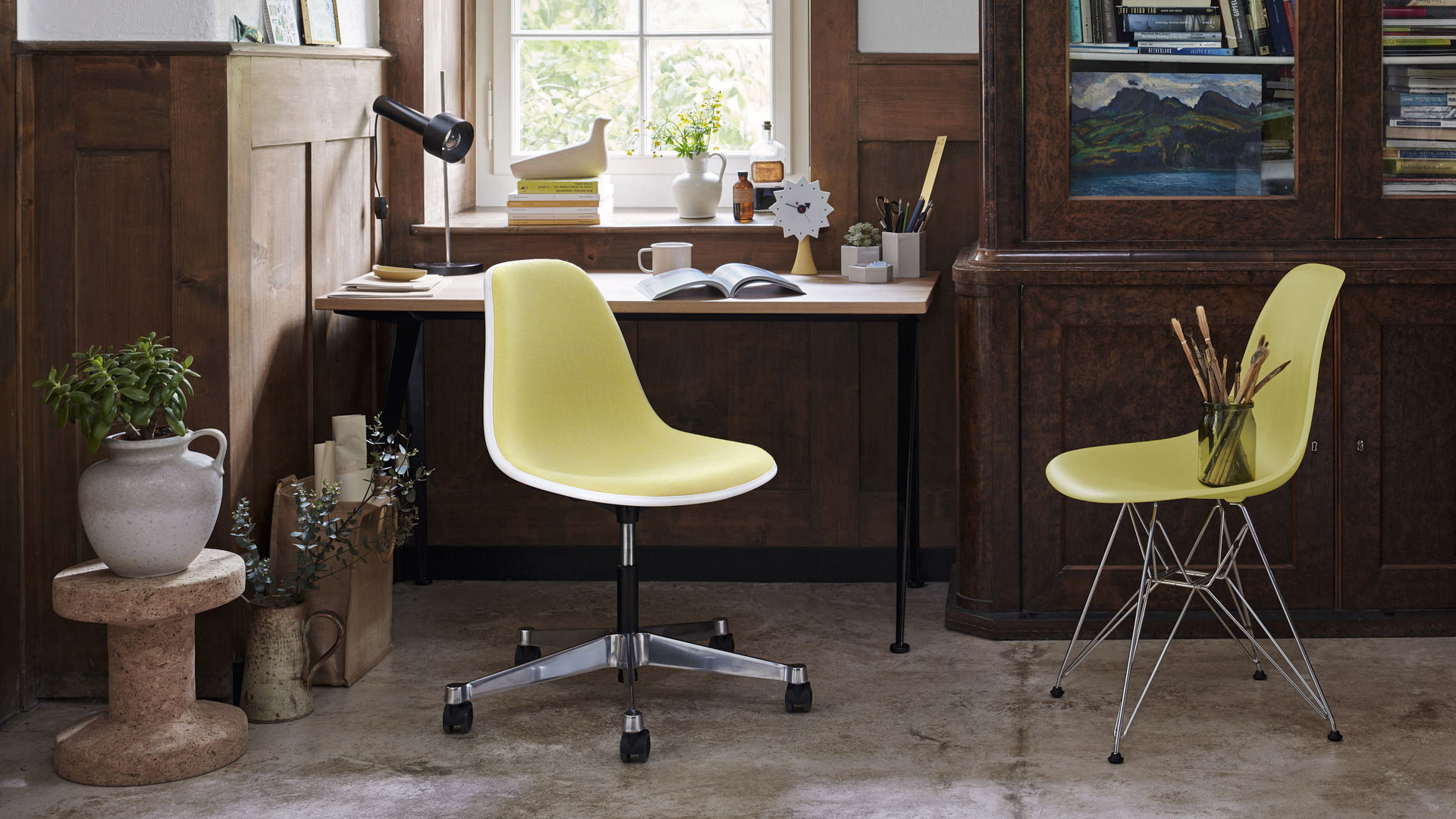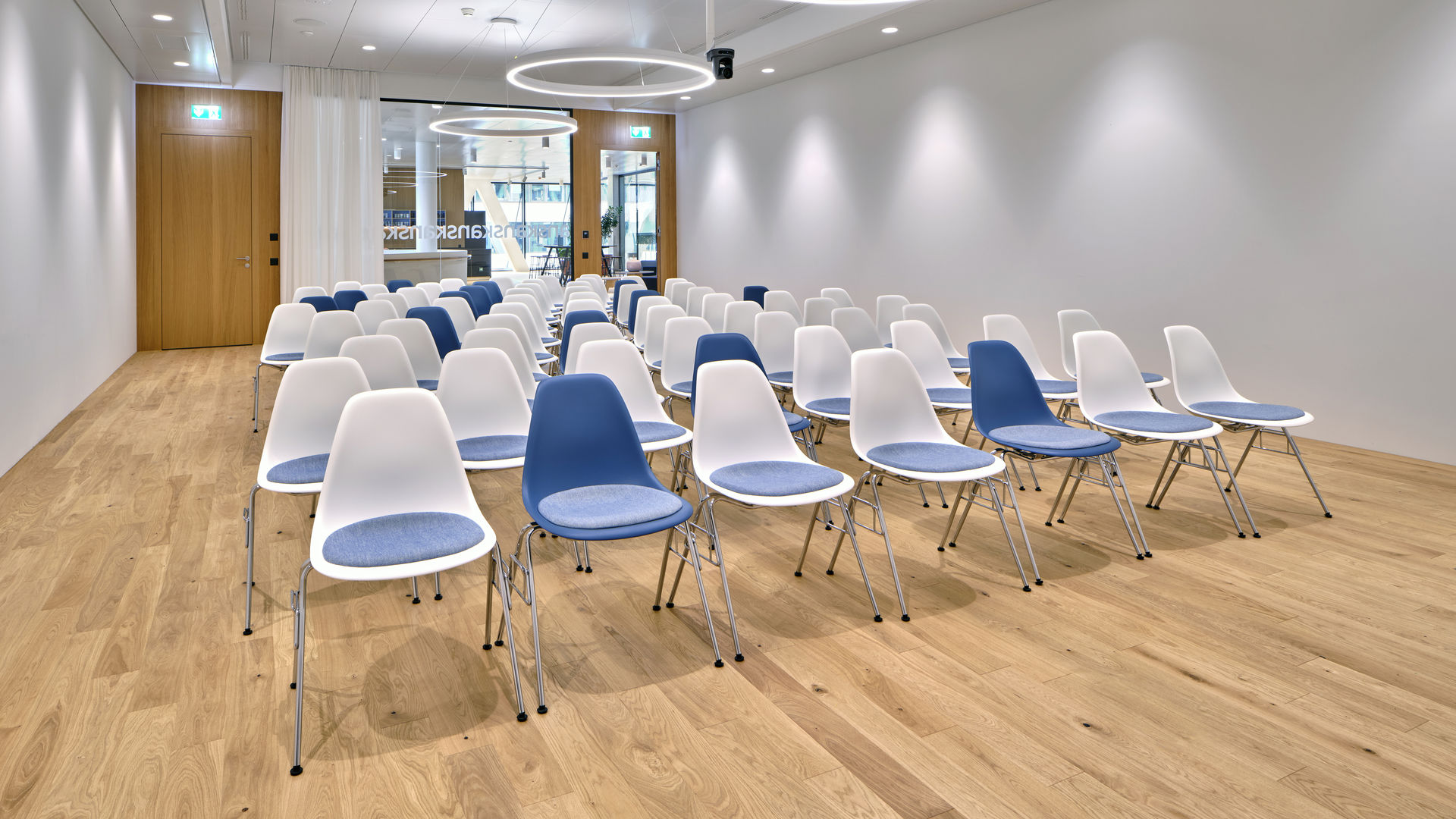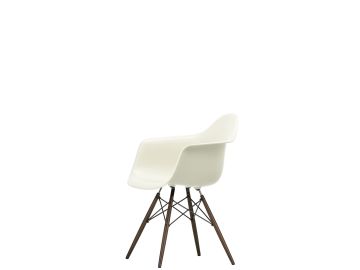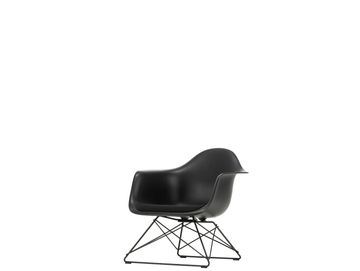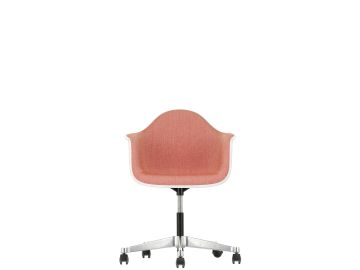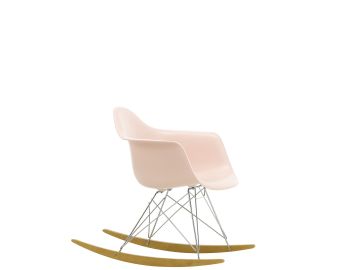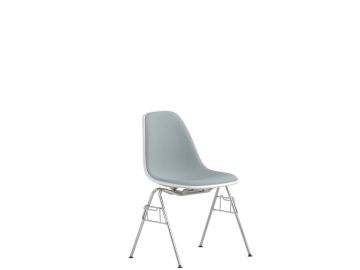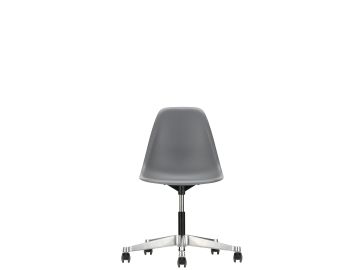ProductsChairsLounge chairsSofasOffice chairsChaises longuesStools & benchesSculpturesConference chairsAirport seatingStorage spaceMicro architectureDining tablesCafé tablesCoffee & side tablesDesksOffice furniture systemsConference systemsLightingClocksDecorative objectsCoat racks & wall shelvesTrays & vesselsNewBestsellerColour & materialAlexander Girard Antonio CitterioBarber OsgerbyCharles & Ray Eames George NelsonHella JongeriusIsamu NoguchiLounge chair finderOffice chair finderGift finderCare & repairSpare partsCare productsManufacturer warrantyVitra Circle StoresLounge Chair & OttomanHang it allInspirationsLiving roomDining roomHome OfficeChildren's roomOutdoorHome StoriesAugmented RealityColours & materialsHome SelectionWorkspaceFocusMeetingWorkshopClub OfficeCitizen OfficeStudio OfficeDynamic SpacesHospitalityAirportsEducationCo-WorkingHealthcareOur ClientsDestination WorkplaceA case for classicsOffice chairsDancing OfficeHome StoriesThe Home Selection fabrics from Kvadrat and DedarAugmented Reality - bring Vitra products into your homeSchool of Design: Showcase work and knowledgeA case for classicsColour & materialAn open house An office landscape - without walls or partitionsHigh comfort of low energyA leading space for a leading art collegeServicesCare & repairCare productsManufacturer warrantyFAQ and contactInstructionsConsulting & Planning StudioVitra Circle StoresConsulting & planning in the VitraHausInstructionsOutdoor care instructionsRepair, maintenance, overhaul at the Vitra Circle Store Campus ProfessionalsCAD dataProduct factsheetsCertificatesSustainability reportInstructionsEcology informationpConPlanning examplesColour & Material LibraryCertificates and standardsHome SelectionTo the dealer loginOur ClientsMyntDestination Workplace: Visit our clients and partnersAnagram SofaMikadoTyde 2 on castorsACXDancing OfficeOffice chairsMagazineStoriesConversationsExhibitionsDesignerProject VitraA Capsule in TimeSeeing the forest for the treesRefining a classicMynt is a lifetime achievement to meA desk like a typefaceV-FoamSculptural IconsGames bring people together – just like good officesLet there be light!Social SeatingJust Do It!EVER GREENWhy the Eames La Fonda Chair was designedWhen a Sofa is more than just a Sofa: Anagram100% virgin wool – 100% recyclableAn archive is like a time capsuleVitraHaus Loft - A conversation with Sabine MarcelisA 1000 m2 piece of furnitureFrom a toy to an objectThe Eames Collection at the Vitra Design MuseumAbout the partnership between Eames and VitraVitra CampusExhibitionsGuided tours & workshopsFood and drinkShoppingActivities for familiesArchitectureYour eventConsulting & planning in the VitraHausPlan your visitVitra Campus appCampus EventsNewsVitraHausVitra Design MuseumVitra SchaudepotVitra Circle Store CampusOudolf GartenAbout VitraSustainabilityJobs & CareersDesign processThe Original is by VitraHistory - Project Vitra
Eames Plastic Chairs RE
Charles & Ray Eames, 1950

'Getting the most of the best to the greatest number of people for the least': with these words, Charles and Ray Eames described one of their main goals as furniture designers. None of their other designs come as close to achieving this ideal as the Plastic Chairs. For years, the designer couple explored the fundamental idea of a one-piece seat shell moulded to fit the contours of the human body. After their experiments with plywood and sheet aluminium in the 1940s yielded unsatisfactory results, the designers turned to alternative materials which led them to glass-fibre reinforced polyester resin.
Eames Plastic Chairs RE
Since January January 2024, the shells of the Eames Plastic Chairs are manufactured from post-consumer recycled material. Due to the composition of the recycled material, the different colour variations of the seat shells are interspersed with tiny specks of pigment.
The Eameses recognised and fully exploited the advantages of the material: mouldability, rigidity, pleasant tactile qualities, suitability for industrial manufacturing methods. With this material, which was previously unknown in the furniture industry, they successfully developed the shell designs for serial production. After their debut at the 'Low-Cost Furniture Design' competition organised by the Museum of Modern Art in 1948, the Plastic Armchair (A-shell) and Plastic Side Chair (S-shell) were launched on the market in 1950 as the very first mass-produced plastic chairs in the history of furniture.
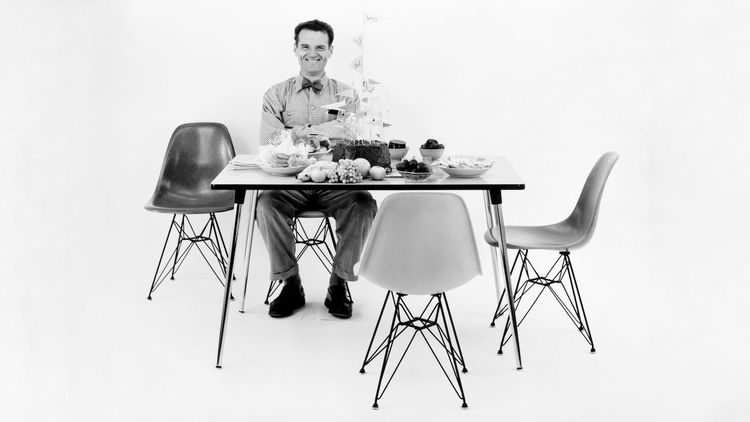

The Eames Plastic Chairs also introduced a new furniture typology that has since become widespread: the multifunctional chair whose shell can be joined with a variety of different bases to serve diverse purposes. As early as 1950, Charles and Ray Eames presented a series of bases that enabled various sitting positions.
Over the years and in ongoing consultation with the Eames family, Vitra has introduced more sustainable materials for the seat shells of the Eames Shell Chairs. As of 2024 the shells of the Eames Plastic Chairs are now made of recycled plastic and the chair family is known as Eames Plastic Chair RE. The high-quality recycled material stems from household recycling, particularly used packaging, obtained through the 'Yellow Bag' (Gelber Sack) collection programme in Germany. Utilising this raw material instead of petroleum-based primary plastics generates fewer climate-damaging emissions, with a significant reduction in primary energy consumption. Due to the composition of the recycled material, the different colours are interspersed with tiny specks of pigment. The colour white has been replaced by cotton white RE, however the original white polypropylene version is expected to still be available until December 2025. Like the seat shells of Eames Plastic RE, it is 100% recyclable at the end of its product life.
Information
Seat shell RE
More colorsSeat shell
Seat shell and base, predefined colour combinations DSR

34/92 mustard RE/citron

11/30 pebble RE/Eames Sea Foam Green

83/93 sea blue RE/sky blue

48/24 forest RE/dark green
Hopsak
More colorsChecker
Base DAL, DSL
Base DAR, DAX, LAR, DSR, DSX, LSR
Base DAW, DSW
Base DSS, DSS-N
Base PACC, PSCC
Rocking skids RAR
Material description
- Seat shell: dyed-through, recycled polypropylene, 100% recyclable. All models are available with a seat cushion (screwed to the seat shell) or full upholstery, both made of recyclable polyurethane foam 'V-Foam'. The fully upholstered version has moulded polyurethane foam padding covered in fabric, attached to the shell with a welted edge. Different shell and upholstery colours and various bases provide a multitude of possible combinations.
- Note: due to the composition of the recycled material, the seat shell colours exhibit very subtle specks of pigment.
- Options: the Eames Plastic Chair RE is available as a visitor chair, dining chair, rocking chair, swivel chair or in stacking versions and with ganging brackets for row seating. Beam-mounted shells are suited for use in waiting areas.
When a chair launches a revolution.
Eames Fiberglass Chair and Eames Plastic Chair
The story of a Vitra original
This product was designed by
Charles & Ray Eames






Charles and Ray Eames are counted among the most important figures of twentieth-century design. Their work spans the fields of furniture design, filmmaking, photography and exhibition design. Vitra is the sole authorised manufacturer of Eames products for Europe and the Middle East. When you own an Eames product made by Vitra, you know it is an original.
